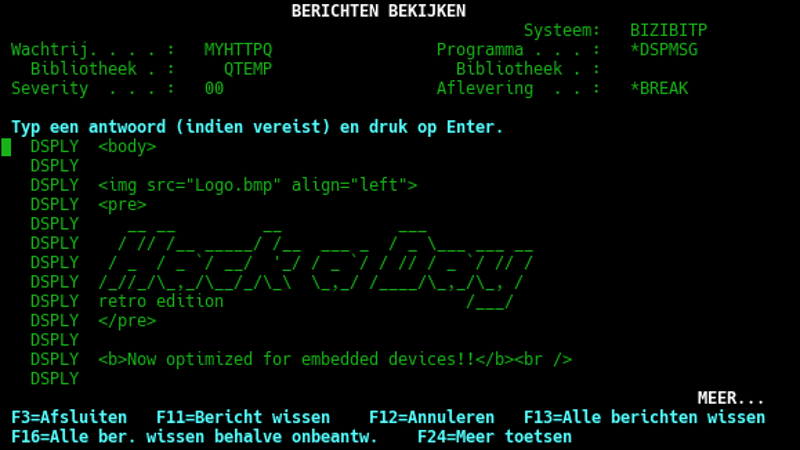Linux is probably going to stop 486 support soon. 32-bit 586 and 686 will continue. *(At least for now).
But many distro's have quit making 32 bit releases all-together.
if @wizardfromoz gets his hands on it, all of themAs a side note: Supposedly IBM is working on a 128 bit PowerPC.
They estimate it won't be ready for the consumer market for at least another 10 years.if
Current price - $720,000.00 US. That's a little out of my budget range.
But I'm sure @KGIII and @wizardfromoz will probably have 3 or 4 of these soon.
I wonder what OS this will run?

From what I understand, there's really no need for 128 bits in general computing.
20 yrs ago who needed it?20 years ago, who would've thought that?
but it wasn't long ago, someone said 640k ought to be enough
128 bit machines will be used in servers within the next 5 to 10 years I'll bet.
People will buy almost anything.My Brother in Law worked for IBM for 27 years and His son now works for Red hat. He used to say IBM did not develop anything they thought would not make an extra dime
I'd blow out the few brain cells I have left if I even try to figure or understand what the hell you just said.That'd be why I said 'general computing'. We may see a use for 128 bits eventually, particularly with cryptography. Though, 64 bit can handle up to 16 exabits. (That's 1.6e+10 GB, or 16 *trillion* GB!) So, we should be okay for a while longer.
I'd blow out the few brain cells I have left if I even try to figure or understand what the hell you just said.

I think my waist line would.You'd not be able to tell 3.5 trillion jelly beans from 4 trillion jelly beans.
“Space is big. You just won't believe how vastly, hugely, mind-bogglingly big it is. I mean, you may think it's a long way down the road to the chemist's, but that's just peanuts to space.” [HHGTG}That too is a pretty damned big number!
I'd take you up on that but at my age I would most likely not be around to see it. So you'd be outI'll take that bet, though we gotta define 'used'. Say, more than 10%?
$50 to your nearest animal shelter or AWAP, which ever you prefer.
(Assuming I'm alive then.)
Ever heard of the AS/400 ?Being that IBM is developing it. Bet it will run Redhat

I'd take you up on that but at my age I would be around to see it. So you'd be out
I offer the following analogy to try to grasp how big one trillion of anything is. Keep in mind that the US National Debt is now over $31T (source).Those numbers, as well as the numbers for 64 bit, are so large the human brain can't really picture them. You'd not be able to tell 3.5 trillion jelly beans from 4 trillion jelly beans.
